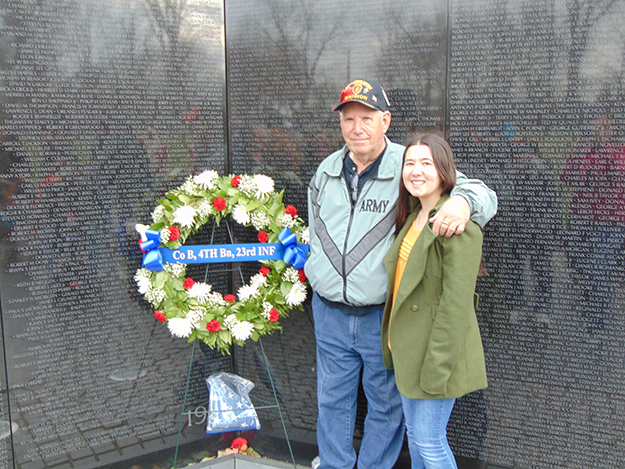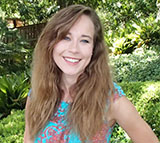Student Resources
The Institute for Oral History provides resources and employment opportunities for a wide range of students who seek to learn more about the profession of oral history or use primary source materials in their work. In addition, the Institute is just a fun place to work! We seek to align student workers with their interests when it comes to assignments, and hold at least two celebratory events per year. We hope you will consider us as an avenue in the pursuit of your career goals!
The Institute for Oral History has worked closely with Baylor undergraduate students for decades to process the oral history interviews in our collection. We are also available to provide instruction and consultation for classroom oral history projects across the disciplines.
Undergraduate Work-Study Positions
Undergraduate students can apply to serve as transcription assistants in the Institute. The transcription assistant serves primarily as transcriber of oral history interviews (includes proofreading) and to enter corrections on transcripts after editing by graduate assistants, interviewers, and interviewees. They also serve as office assistants on various tasks. Applicants must be proficient in Microsoft Word, Excel, and other Office programs as well as basic internet research. General office experience desired, and experience with digital audio media a plus.
The position requires a minimum of 10 hours per week of work. Students interested in this position should contact our administrative associate, Caleb Lindgren, to inquire about potential openings for the current and future semesters.
Undergraduate Research
An important area of our research mission is collaborating with undergraduate students as they carry out their own oral history research initiatives. Students work with the staff of the Institute to create, develop, design, process, and analyze an interview project, significantly enriching the undergraduate research experience. Some examples of undergraduate research projects formed in partnership with the Institute for Oral History are highlighted below:
Kara Nelson ’24 with Mr. Harvey Browning ’71, interviewing him for her project, ‘Vital Voices of Baylor: The Experienced History of the First African American Students at Baylor University
Baylor Senior Kara Nelson was awarded a 2023-2024 Undergraduate Research and Scholarly Achievement [URSA] grant for a research project directed by Dr. Stephen Sloan. Her project, “Vital Voices of Baylor: The Experienced History of the First African American Students at Baylor University,” preserves the experiences of the first black students to attend Baylor University. Ms. Nelson attended Institute workshops to acquire oral history training and conducted fieldwork, traveling to meet and interview early African American graduates of Baylor. Ms. Nelson will present her research at the annual meeting of the Southwestern Social Science Association in New Orleans in April 2024. Long-term, in collaboration with Dr. Sloan and Baylor University Press, Ms. Nelson’s research will publish a book presenting these experiences of the first African American students at Baylor.
 Baylor junior and University Scholar Emily Messimore was awarded a 2018-2019 Undergraduate Research and Scholarly Achievement [URSA] grant for a research project directed by Dr. Stephen Sloan. Her project, “In the Shadow of The Mountain: Stories from Soldiers in Tay Nihn,” works to preserve and present the stories of the Vietnam Veterans of Bravo Company 4/23 of the 25th Infantry Division. As part of the project, Ms. Messimore also received specialized training in conducting oral history interviews with Vietnam War veterans from Dr. Kelly Crager on a research trip to the Vietnam Center and Archive at Texas Tech University. Summer 2018 fieldwork also included an interview research trip to the Mid-Atlantic region where she conducted several oral histories with veterans. Ms. Messimore will present her research at The Society for Military History annual conference at The Ohio State University in May 2019. Long-term goals for her project include compiling a book of stories for the veterans themselves and a more public audience interested in the American experience in the Vietnam War and making a return trip with Bravo Company veterans to Vietnam.
Baylor junior and University Scholar Emily Messimore was awarded a 2018-2019 Undergraduate Research and Scholarly Achievement [URSA] grant for a research project directed by Dr. Stephen Sloan. Her project, “In the Shadow of The Mountain: Stories from Soldiers in Tay Nihn,” works to preserve and present the stories of the Vietnam Veterans of Bravo Company 4/23 of the 25th Infantry Division. As part of the project, Ms. Messimore also received specialized training in conducting oral history interviews with Vietnam War veterans from Dr. Kelly Crager on a research trip to the Vietnam Center and Archive at Texas Tech University. Summer 2018 fieldwork also included an interview research trip to the Mid-Atlantic region where she conducted several oral histories with veterans. Ms. Messimore will present her research at The Society for Military History annual conference at The Ohio State University in May 2019. Long-term goals for her project include compiling a book of stories for the veterans themselves and a more public audience interested in the American experience in the Vietnam War and making a return trip with Bravo Company veterans to Vietnam.

Baylor senior and University Scholar Avery C. Lill received a 2015-2016 Undergraduate Research and Scholarly Achievement [URSA] grant for a research project directed by Dr. Stephen Sloan. Titled, "Voices of East Austin: Preserving the Stories of East Austin in the Face of Impending Gentrification," this undergraduate research initiative preserves the stories of people in historically underserved, rapidly gentrifying neighborhoods in East Austin. The researcher has investigated primary and secondary source materials on the topic of US urban gentrification in general and on the eastern side of the state's capital city in particular. Based on the background research, she is conducting oral history interviews with local residents and municipal leaders to document their experiences and their perceptions of the forces of redevelopment in their neighborhoods. The study preserves and highlights the cultural identity of the East Austin community and provides greater understanding and context of the character of Austin as a whole. Through the stories of its residents, the study will reveal what is at stake as the area is transformed. Ms. Lill will present an original paper based on her research at the annual meeting of the Southwestern Social Science Association [SSSA] in Las Vegas, Nevada, in March 2016, and also will develop a short, three- to five-minute, human interest audio documentary suitable for public radio.

Jillian Buttecali, a junior, pre-business major, received a 2010-2011 Undergraduate Research and Scholarly Achievement [URSA] grant for a project titled "A Better Hometown: Universalizing the Structure of Incorporated Towns and Townships." Through oral history research, Ms. Buttecali explored the challenges faced by incorporated townships in Texas, most notably urban crime, urban government disconnect, and socioeconomic isolation. Under the mentorship of Dr. Stephen Sloan, she interviewed community leaders in Houston and federal officials in Washington and made a presentation at the SSSA Annual Meeting in Las Vegas, Nevada, in March 2011.
Graduate Seminar in Oral History
Baylor University students qualifying for participation in graduate-level courses may take HIS 5367 (cross-listed as AMS 5367), Seminar in Oral History. Taught by Dr. Stephen Sloan, Professor of History and the Director of the Institute for Oral History, the seminar investigates the literature and methods of recent oral history, with emphasis on the practical application of oral history methodology to research projects in multidisciplinary fields.
Graduate Assistantships
Baylor University graduate students may apply for annual graduate assistantships in the Institute for Oral History. Graduate students seeking an assistantship with the Institute should contact our Senior Editor, Steven Sielaff and the Graduate Program Director for their academic department. Applications are accepted in the spring for the academic year beginning the following summer.
As assistants, graduate students learn the principles of oral history interviewing, editing, and archiving. They participate in the research of the Institute by editing the transcripts prepared by undergraduate transcribers, helping to create and maintain the digital archives of the Institute's document and audio collection, assisting faculty members with preparation for interviews, and occasionally by conducting field interviews themselves. Opportunities are also available to work as graduate editors or digital technicians at the Institute for Oral History.
All Institute for Oral History graduate assistants usually work fifteen hours per week in our office suite on the third floor of Carroll Library. All students interested in applying for either a graduate editor or digital technician position in the Institute must be enrolled in the Baylor University Graduate School. For more information, e-mail the Institute; or phone 254.710.4642.
2024-2025 Assistantships
Check back soon for any possible vacancies/additions for the 2024-25 academic year!